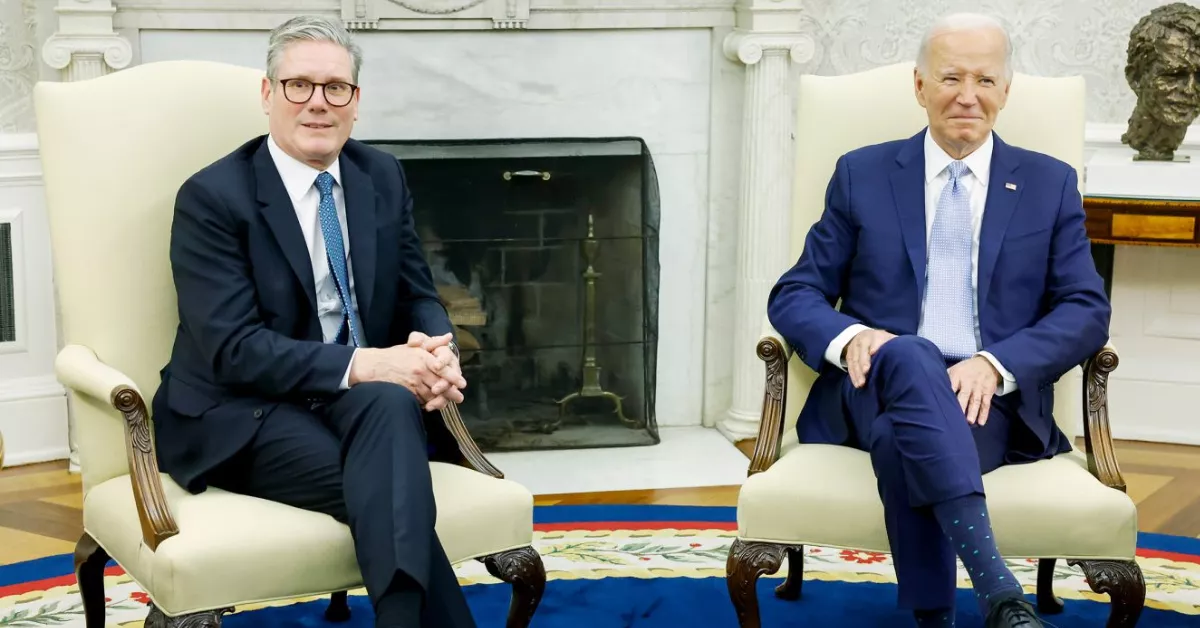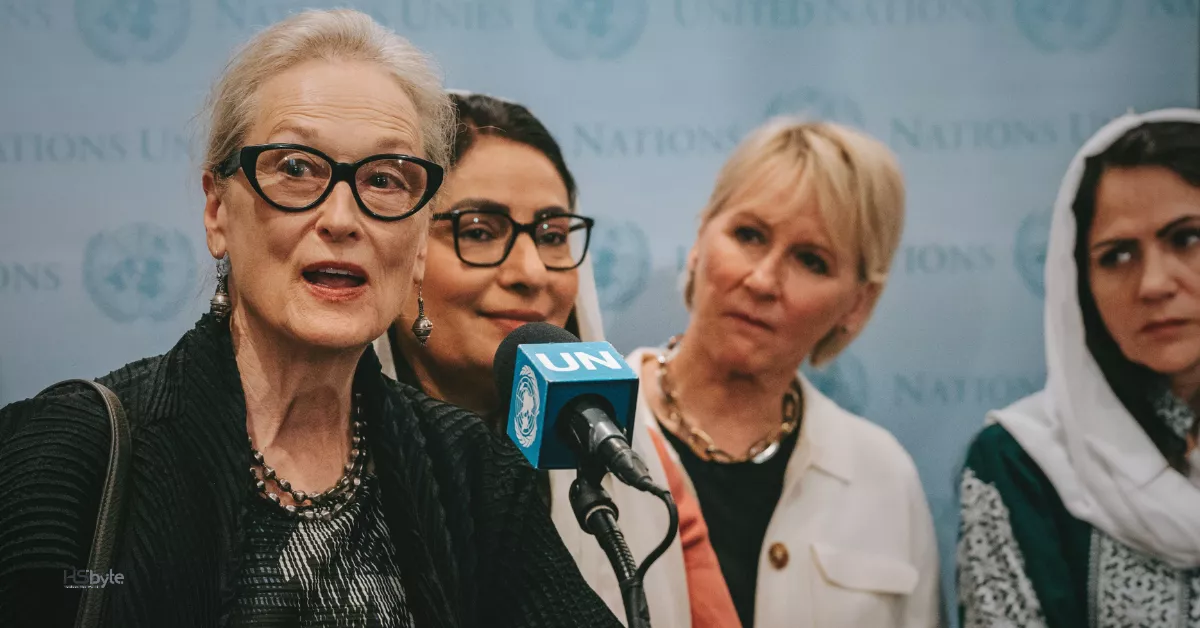
- Category: News, US & Canada, World

- Share
In the midst of ongoing global unrest, UK Labour Party leader Sir Keir Starmer recently met with U.S. President Joe Biden for a crucial set of discussions. These talks, held at a time when the conflict between Russia and Ukraine continues to dominate global attention, were expected to touch on key issues of international security, particularly the military support being provided to Ukraine. As Ukraine presses forward in its efforts to defend its sovereignty against Russian forces, there was growing anticipation that the meeting might result in new pledges of missile systems or advanced weaponry to aid Ukraine’s defense. However, to the disappointment of many observers, the discussions ended without any new commitments on supplying Ukraine with missiles.
The meeting, while significant in its own right, was part of a broader conversation aimed at reaffirming the longstanding relationship between the United States and the United Kingdom. Both leaders emphasized the importance of transatlantic cooperation in addressing global challenges. At the top of that list remains the war in Ukraine, a conflict that has not only threatened European security but has also rattled the global political landscape.
While the dialogue between Biden and Starmer underscored their shared commitment to supporting Ukraine, the absence of new military pledges raised questions about the future trajectory of Western aid to the war-torn country. The West has already provided Ukraine with substantial military and financial assistance, but as the war stretches on, there is a growing debate about how much further this support can go without risking a dangerous escalation.
The Role of Western Military Aid
Since the beginning of Russia’s full-scale invasion of Ukraine in February 2022, Western countries, including the U.S. and the UK, have been pivotal in helping Ukraine resist Russian advances. Both countries have supplied Ukraine with financial support, intelligence, and a range of military equipment, including critical missile systems. These weapons have played a key role in enabling Ukrainian forces to launch counteroffensives and hold off Russian troops in key areas. Long-range missile systems like HIMARS, provided by the U.S., have given Ukraine the ability to strike deep into Russian-controlled territory, disrupting supply lines and military installations.
Despite the substantial aid that has already been delivered, Ukraine has repeatedly called for more advanced weapons to tilt the balance in their favor. Particularly, Kyiv has emphasized the need for long-range missiles and sophisticated air defense systems that would allow it to better protect its cities and infrastructure from Russian missile and drone attacks. The lack of new missile commitments after the Starmer-Biden meeting leaves Ukraine’s government still looking for further support, even as they work with the substantial military resources already at their disposal.
The Delicate Balance of Military Support
One of the reasons that no new missile commitments were made during the Starmer-Biden discussions is likely due to the complexity of providing such support. While the U.S. and the UK remain committed to Ukraine’s defense, there are growing concerns that supplying more advanced and long-range missile systems could escalate the conflict beyond Ukraine’s borders. Russia has consistently warned that if Ukraine were to acquire missiles capable of striking deep into Russian territory, it could provoke a severe response, potentially leading to a broader war involving NATO countries.
Western leaders are well aware of the potential dangers of escalating the conflict. Both Biden and Starmer, while expressing strong support for Ukraine, must also weigh the risks of provoking Russia into taking more aggressive actions. There are fears that further escalation could lead to direct confrontations between NATO and Russia, something that both sides are keen to avoid. The specter of nuclear weapons, which Russia has repeatedly alluded to, looms large in these calculations, making the decision to provide additional missile systems a fraught one.
Another factor that likely contributed to the lack of new missile pledges is the ongoing diplomatic efforts to find a resolution to the war. While military support remains critical to Ukraine’s ability to defend itself, there is a growing recognition that the war may ultimately need to be resolved through diplomatic means. Providing Ukraine with more advanced missile systems could complicate ongoing diplomatic negotiations, hardening positions on both sides and making a ceasefire or peace agreement more difficult to achieve.
Biden, in particular, has emphasized the need for diplomacy in addressing global conflicts, and it is possible that this approach influenced the outcome of the talks with Starmer. While the U.S. remains committed to helping Ukraine defend its territorial integrity, it is also cautious about actions that could close off the possibility of future negotiations with Russia. The absence of a new missile pledge may reflect this broader diplomatic strategy, aimed at keeping all options on the table while continuing to support Ukraine’s defense.
Domestic Considerations
Both Biden and Starmer also face significant domestic pressures that may have influenced the outcome of their talks. In the U.S., President Biden is preparing for the 2024 presidential election, and while there is bipartisan support for Ukraine, some segments of the electorate are growing weary of the costs associated with continued military aid. The U.S. has already committed billions of dollars in aid to Ukraine, and with domestic issues such as inflation, healthcare, and infrastructure taking center stage, there are limits to how much additional support can be politically viable.
In the UK, Starmer is positioning himself for a general election expected in 2024, where he hopes to unseat the Conservative government and become Prime Minister. While Starmer has been vocal in his support for Ukraine, he must also balance this with the needs of the British public, particularly as the UK faces economic challenges and a cost-of-living crisis. The decision not to push for new missile pledges during his meeting with Biden may have been influenced by the need to keep the focus on domestic issues as well.
The Road Ahead for Ukraine
For Ukraine, the outcome of the Starmer-Biden talks may be seen as a missed opportunity to secure further military aid. However, it is important to remember that the West remains deeply committed to Ukraine’s defense. The U.S. and the UK have already provided significant resources, and while no new missile pledges were made during this meeting, the possibility of future support remains open. As the war continues, Ukraine will likely continue to press for more advanced weapons, and Western leaders will need to carefully navigate the delicate balance between supporting Ukraine and avoiding further escalation.
The Starmer-Biden meeting, while not delivering the expected missile commitments, serves as a reminder of the complex dynamics at play in this conflict. As Ukraine continues to defend its sovereignty, the West remains a critical ally, even as leaders like Biden and Starmer work to balance the need for military support with broader diplomatic and domestic considerations. The path forward for Ukraine remains uncertain, but the commitment of its allies, even without new missile pledges, remains a key factor in its ongoing struggle for survival and peace.
You May Also Like


Top 10 Inflatable Boats for Weekend Warriors in 2025

Inflatable Boats 101: Everything You Need to Know Before You Buy

Predictable Revenue: How ValueBuilt Is Redefining Predictable Revenue for Modern Businesses

D’Angelo: Neo-Soul Legend Who Redefined Music

Israeli Hostage Couple Reunited After 738 Days
Latest Update

10 Best TV Shows Rivals to The Diplomat This October

Adil Rashid Retirement Plans: England’s Leg-Spinner Eyes More Wins

Afghan Women Rights Under Attack: Meryl Streep Condemns Taliban

Andres Iniesta Retires: Football Legend Ends Iconic Career at 40



Atletico Madrid vs Real Madrid: Dramatic Equaliser in Heated Derby

